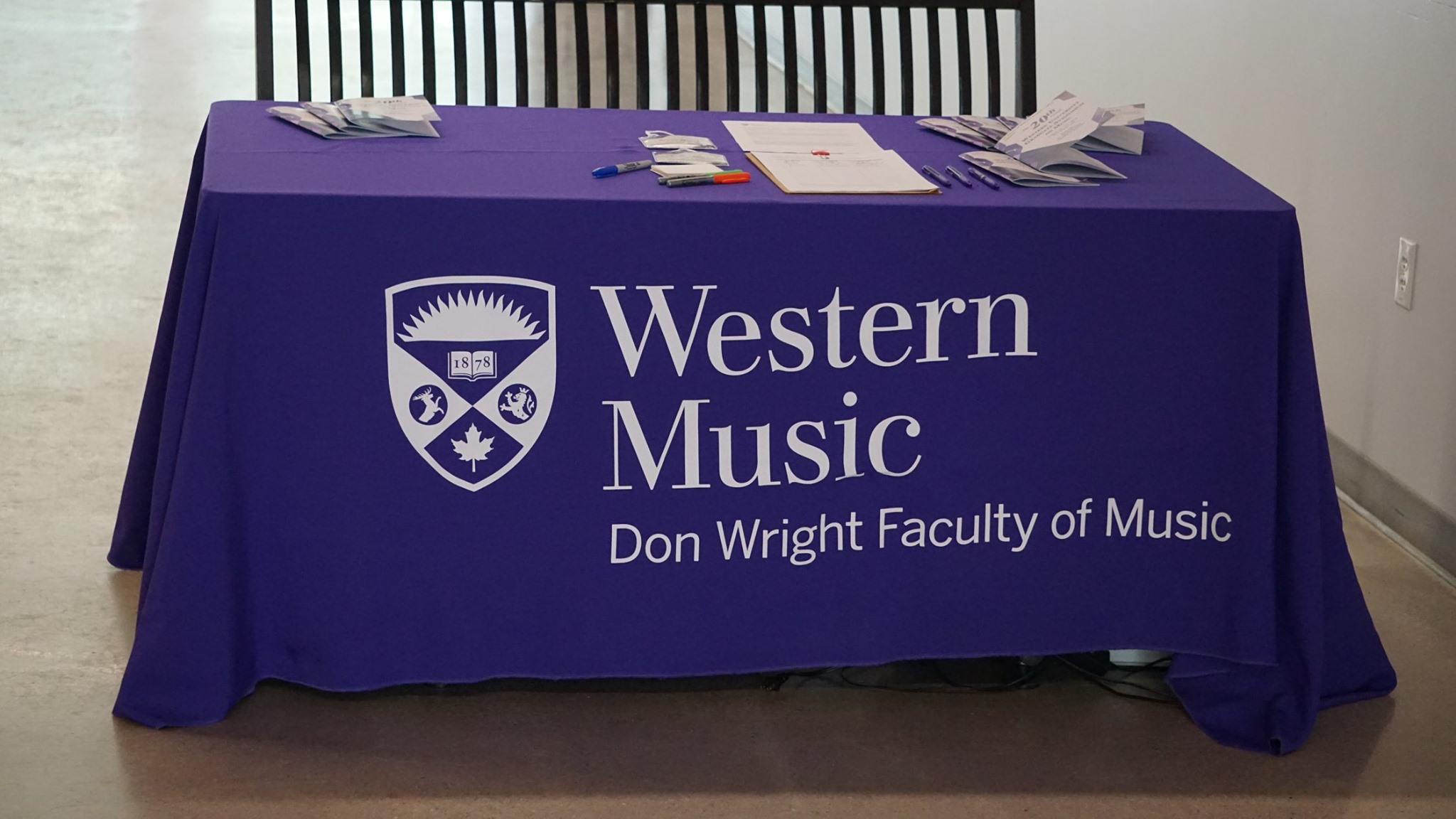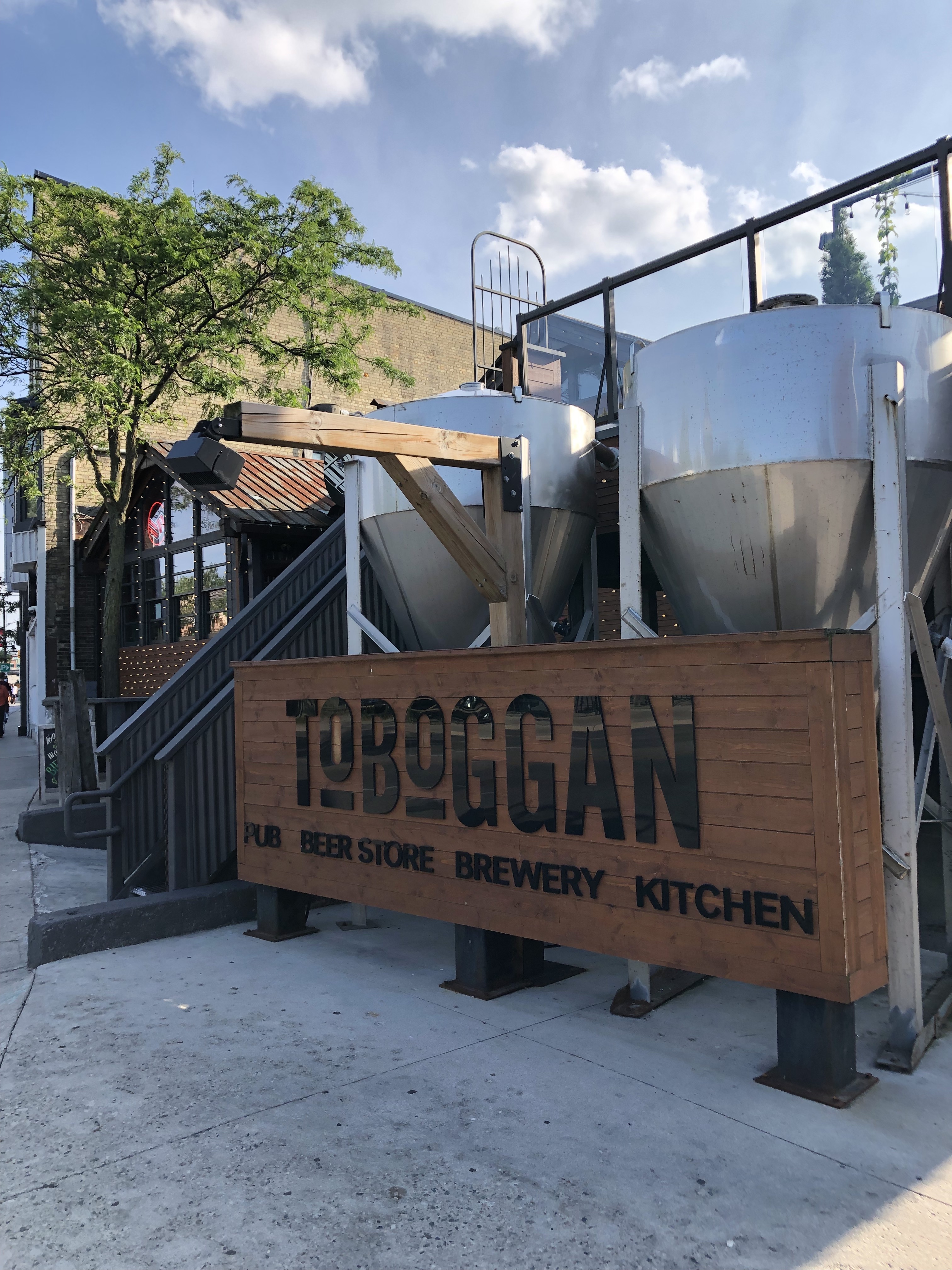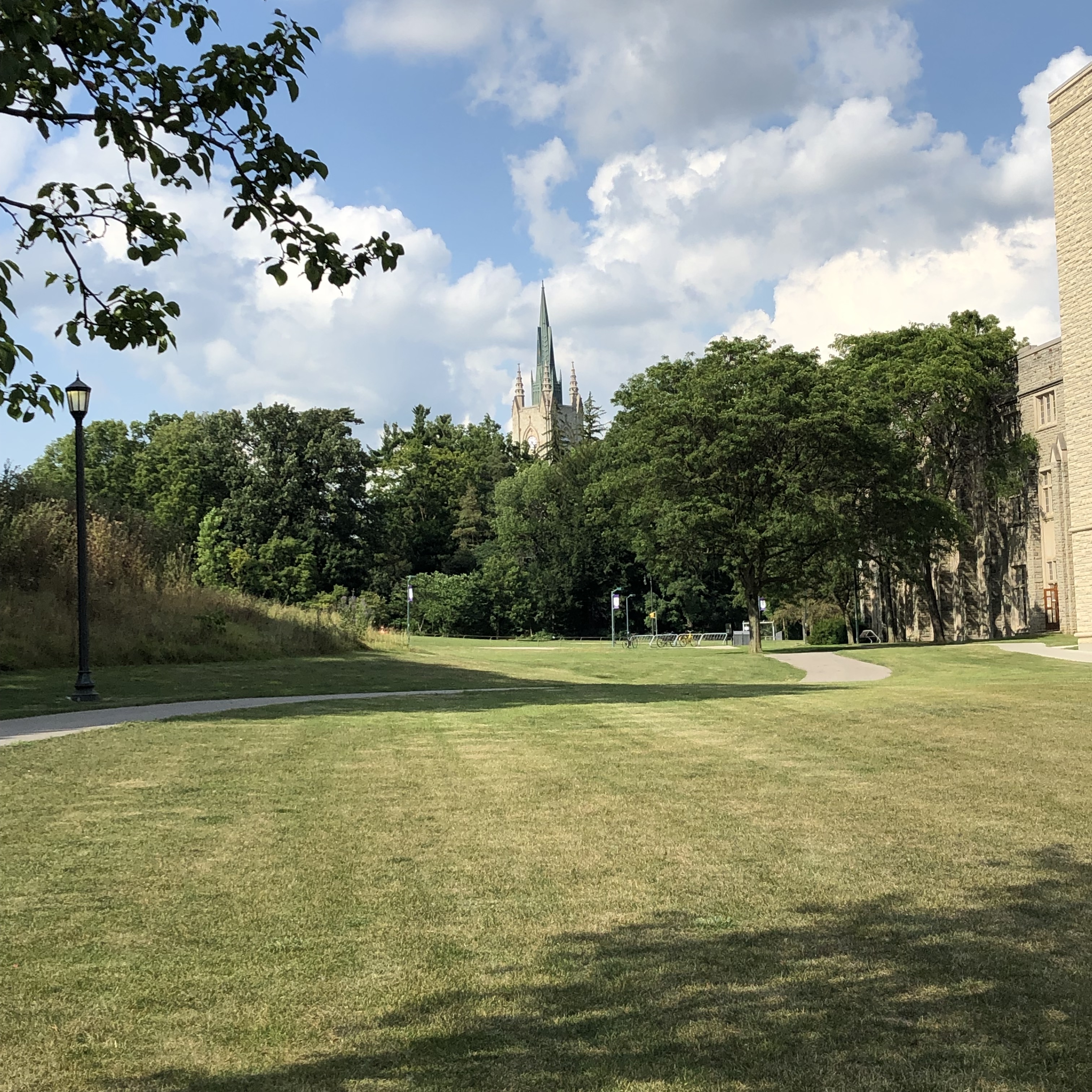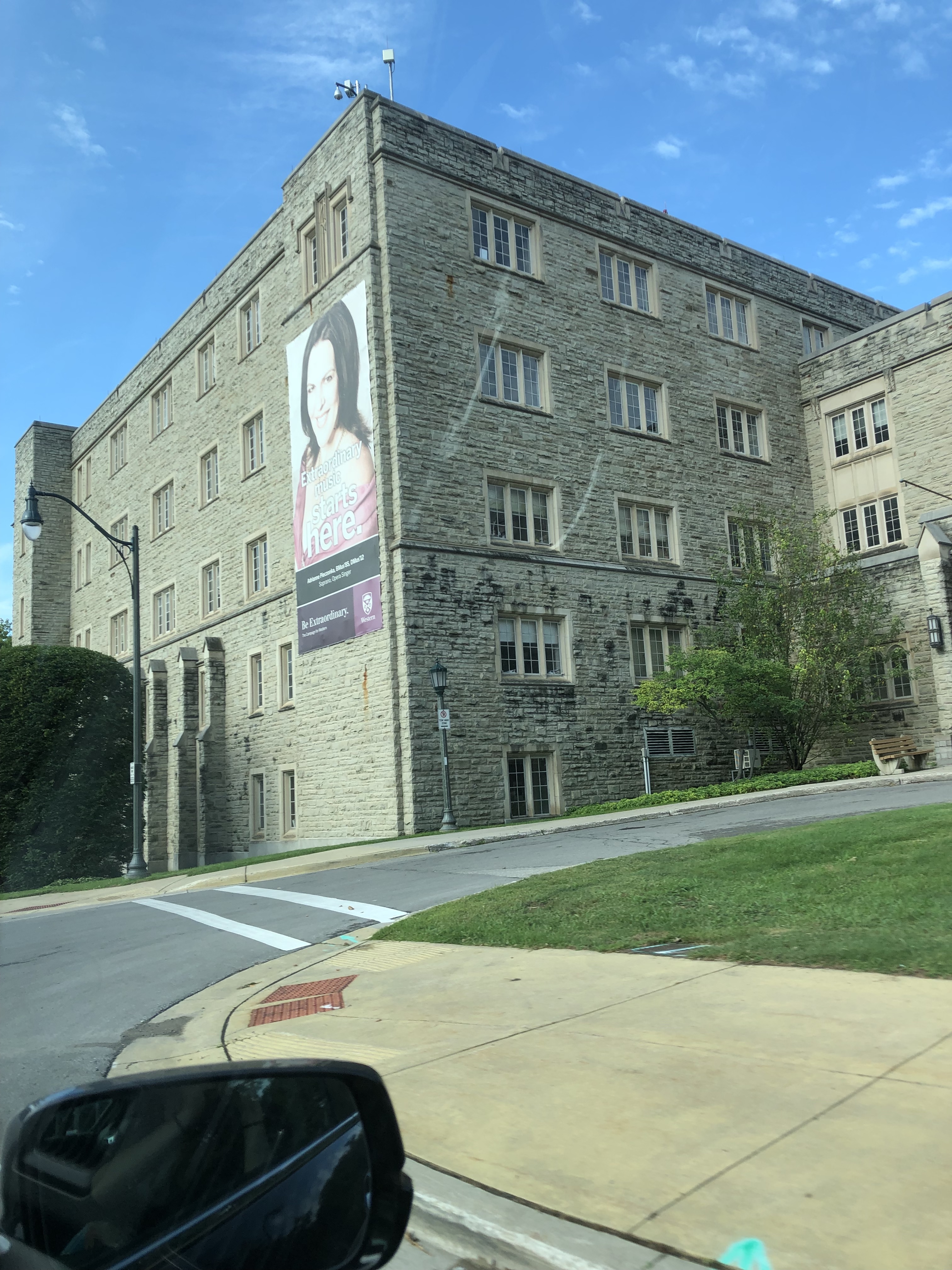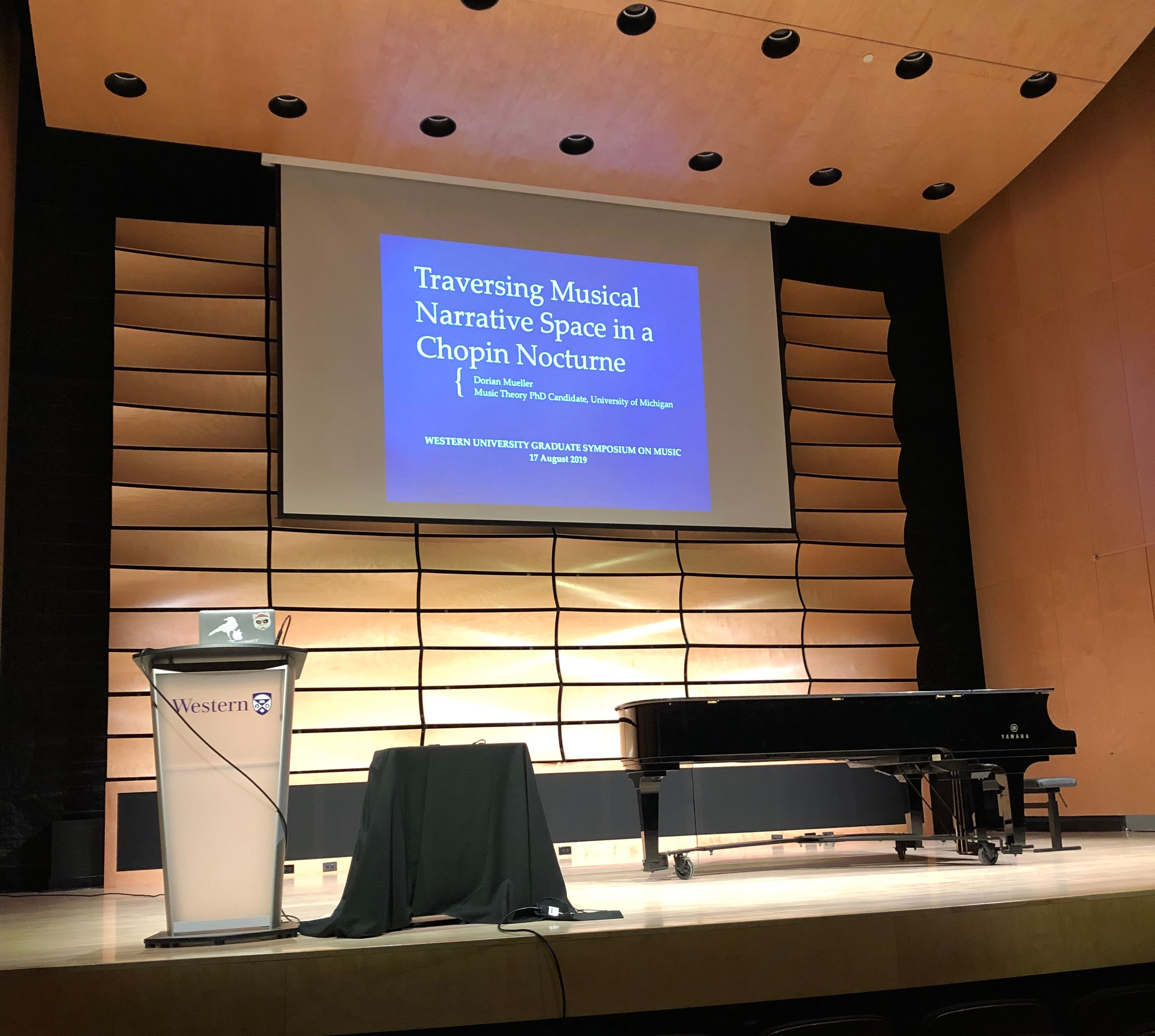
This past August, I presented a paper entitled “Traversing Musical Narrative Space in a Chopin Nocturne” at the 20th annual Western University Graduate Symposium on Music (WUGSOM) in London, Ontario (abstract below). The conference featured papers on diverse topics presented by graduate students in musicology, ethnomusicology, music education, music theory, and music performance from universities across Canada and the US. I was also joined by another U of M student, Taylor Flowers, who presented a paper entitled "Rose-Windows to the Beyond: Parallels Between Messiaen’s Couleurs de la Cité celeste and John’s Apocalypse." The conference concluded with a both captivating and informative keynote address given by Dr. Michael Klein (Temple University) entitled, “Five Things (Plus or Minus 2) that Lacan Teaches Us About Musical Meaning.”
From attending multidisciplinary talks, to engaging in interesting discussions and making new acquaintances in the field, I really enjoyed taking part in such a productive and collaborative event!
Pictures: Click to enlarge and view captions...
Abstract: “Traversing Musical Narrative Space in a Chopin Nocturne”
Within studies of music and narrative, the concept of agency and its role in musical discourse has been theorized from various standpoints (see Guck 1998, 2006; Maus 1998; Monahan 2013; Hatten 2018). However, the narrative spaces in which agency occurs—what one may describe as “musical worlds” as rendered and experienced by the listener—have yet to be explicitly accounted for in as much depth. As “narrative comprehension closely correlates with an understanding of the spatial organization of the storyworld” (Alber 2016, 187), further fleshing out a concept of narrative space in music would provide valuable insight into ways in which we engage with musical narrativity. In this paper, I explore the concept of musical narrative space, drawing parallels to how one conceptualizes narrative space in literature: namely via the constructs of spatial frame, setting, story space, narrative (or story) world, narrative universe, and lived space (Alber 2016; Herman 2002; Ryan 2005, 2009). Focusing mainly on the two constructs of spatial frame and lived space,I propose ways in which these spaces may be (re)defined in music. I then offer an approach to analysis that accounts for the listener’s positioning in relation to musical narrative space throughout the course of listening, as demonstrated through examples from Chopin’s Op. 48 no. 2 Nocturne in F-sharp minor; in particular, I utilize the construct of spatial frames to trace the transformative path through narrative space of the opening “sighing”gesture of the piece, while I conceptualize the Nocturne’s lived space in terms of the latent musical worlds activated and experienced by the listener in the course of tracing this path.
Through my invitation to explore musical narrative space, I hope to not only further perspectives on music and narrative, but to offer a new lens—one that more directly engages with the experiential spaces of the listener—through which to frame approaches in music-analytical discourse more generally.
Recent Posts
SMR to Host Midwest Graduate Music Consortium 2025 Conference – January 13, 2025
SMR Welcome BBQ at County Farm Park – October 01, 2024
Julian Grey defends dissertation – June 05, 2024
Michaela Franzen defends dissertation – May 21, 2024
Kai West defends dissertation – May 16, 2024
Micah Mooney and Carlos Pérez Tabares present at Music Theory Midwest – May 12, 2024
SMR end-of-year round-up at County Farm Park – April 25, 2024
SMR hosts Research Showcase – September 29, 2023
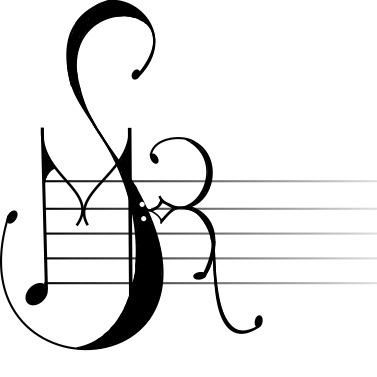 Society for Music Research
Society for Music Research
